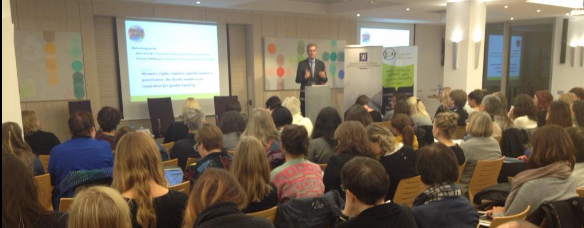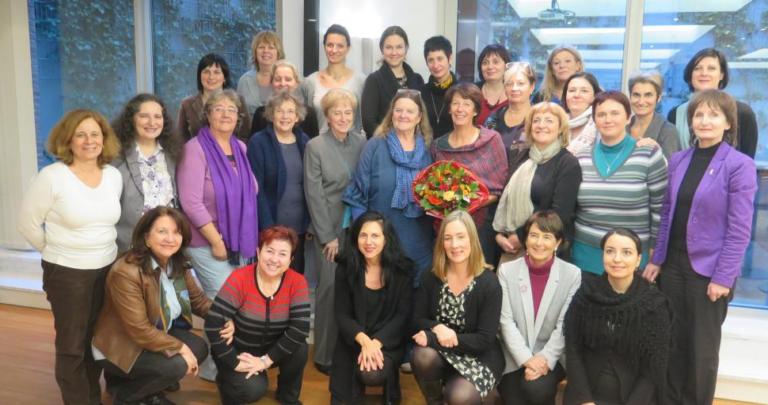The European protection order is an important step towards the protection of female victims of male violence, writes Rosa Fernández Sansa.
Last year, the Spanish EU council presidency put forward a ground-breaking policy initiative which for the first time offered a European legal dimension to the fight against the gender violence that affects some 45 per cent of women in Europe. The European protection order (EPO) is designed to protect victims of violence across the EU, including female victims of male violence, as well as to prevent discrimination and ensure freedom of movement between member states. At present, the protection of victims of violence, including the estimated one in five female victims of domestic violence, is effectively limited by national jurisdictions. If properly implemented, the EPO, issued by the country of origin and transmitted to the host country, will guarantee a consistent level of protection for victims of violence when they move within the EU. According to the Spanish EU council presidency, an estimated 100,000 EPOs will be issued every year, most of them for women who are victims of male violence. The EPO does not, however, guarantee the same level of protection for all victims. As a measure of mutual recognition of national protection orders, it offers no harmonisation or minimum standards to which all member states must adhere. Many EU member states do not even provide protection orders for female victims of violence in intimate partnerships. These differing levels of protection need to be addressed. Freedom of movement is a highly laudable aspect of the EU, but protection from violence is a basic human right, as is equality between women and men. The EPO is to be warmly welcomed as the first proposal of a legally binding EU instrument on violence against women. Unfortunately, a proposal is what it remains at this stage. Having received an initial endorsement by the majority of EU member states in June 2010 and the approval of MEPs in December 2010, the political will to get the measure through seems to have dissipated. For human rights organisations such as the European Women’s Lobby and its Spanish coordination, CELEM, there is no time to waste in moving forward towards a comprehensive EU approach guaranteeing women’s basic rights. The EPO, as part of an EU strategy on violence against women as envisioned by the European parliament and council (see conclusions of 8 March 2010), represents a step in the right direction. We trust that all of the EU member states will give this measure their unreserved support and that together we can progress towards a Europe free of violence against women. Download the article in PDF format or the full issue of the Parliament Magazine.

